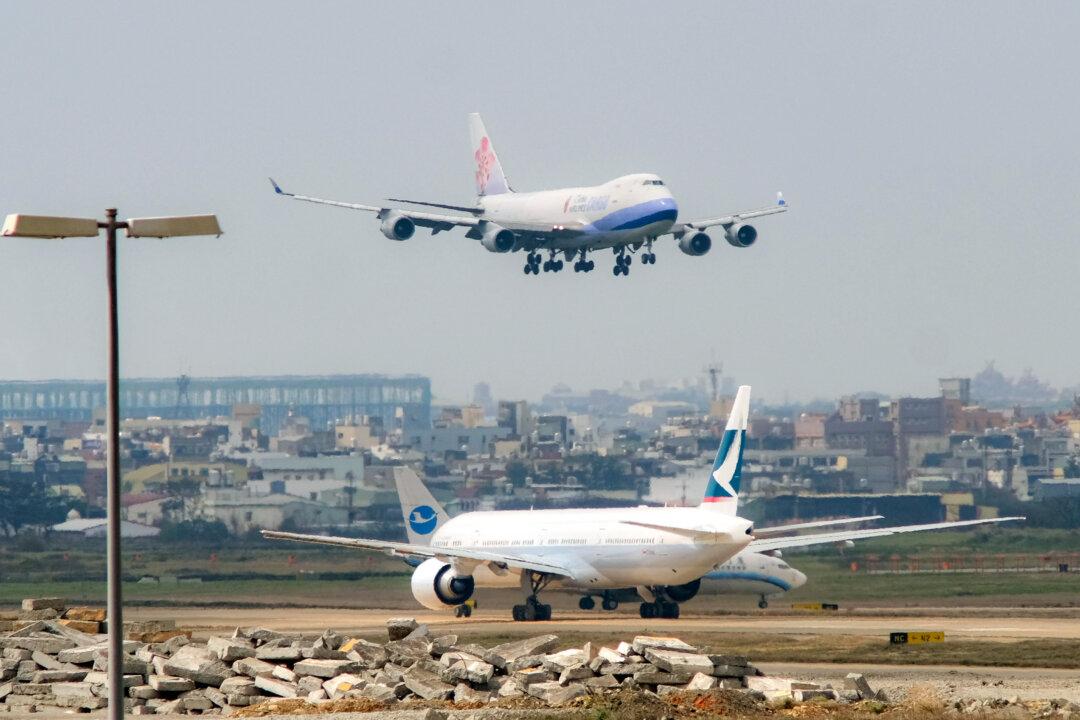Taiwan authorities urged its residents to avoid visiting China because of the heightened risk of wrongful detention under Beijing’s revised state secrets law.
“The Mainland Affairs Council (MAC) would like to remind the public, once again, to refrain from going to China for the time being, unless necessary,” the Taipei-based agency said in a
statement released on April 30, a day before the Chinese Communist Party (CCP) enacted the expanded state secrets law.
On Feb. 27, Beijing
unveiled an amendment to the Law on Guarding State Secrets. The revised law significantly expanded the scope of “state secrets” by including a new category of restricted information, which the Chinese authorities call “work secrets.”
Such legal provisions on work secrets, according to the MAC, are “highly vague and unpredictable” and “may lead to people violating the law at any time,” heightening risks for foreign journalists and businesses.
The MAC pointed out four actions that could violate the new state secrets law when visiting China: interviewing, conducting academic research, collecting business or investment information, and talking with local people.
“As long as the content of the relevant dialogue or the information collected is considered detrimental to the Chinese Communist Party (CCP), it may be regarded as ‘involving state secrets’ by the CCP,” the MAC said.
Given the high degree of ambiguity and uncertainty about the state secrets law and the lack of transparency of the CCP’s rule of law, the MAC said that the risk of Taiwanese visitors breaking the law has “significantly increased” and urged Taiwanese citizens to carefully consider the need to visit mainland China at this time.
The MAC stated that the amended law would increase the risks of overseas institutions and companies operating and investing in the mainland.
Tsai Ming-yen, director-general of Taiwan’s National Security Bureau, pointed out that the amendments give investigators substantial authority to interpret the law, granting the CCP greater political control.
“We note that its provisions cover a very broad scope of so-called secrets without providing sufficient explanations of the details of the secrets. At the same time, they have also authorized front-line investigators to have very strong powers to interpret what constitutes a breach of state secrets,” Mr. Tsai told reporters on May 1, according to Taiwan broadcaster Radio Taiwan International.
“What’s more important is that the national security work they promote places a special emphasis on obeying the leadership of the Party, which will provide the CCP with more room for political guidance,” he added.
‘Fabricated Charges’
In this regard, the MAC accused the CCP of “continuously using legislative methods” to “strictly monitor overseas personnel visiting mainland China.” Cases of Taiwanese nationals and other foreigners visiting mainland China and “being deprived of their personal freedom on fabricated charges” are “not uncommon,” the MAC added.In recent years, the Chinese regime has detained several Taiwanese citizens as it has stepped up political, diplomatic, and military pressures on Taipei. The CCP claims Taiwan as its own territory to be taken by force if necessary, and its top leader, Xi Jinping, has
vowed to achieve “reunification” with the democratically governed nation, even as the CCP has never ruled the island.
One of the most high-profile cases of Taiwanese arrested in mainland China is pro-democracy activist Lee Ming-che, who disappeared in 2017 while visiting China. The CCP later confirmed his arrest and
handed down a five-year prison term on “subversion” charges. Mr. Lee finally returned to home in 2022.
Another notable case is that of political activist Yang Chih-yuan. Mr. Yang was
taken into custody in August 2022, hours after then-U.S. House Speaker Nancy Pelosi wrapped up her visit to Taiwan, prompting observers to describe him as a victim of a high-stakes game of “hostage diplomacy.”
The CCP’s “hostage diplomacy” does not only target Taiwan but also the United States, Canada, the United Kingdom, Japan, and other countries. A renowned case is Beijing’s retaliatory arrests of former Canadian diplomat
Michael Kovrig and businessman Michael Spavor in 2018, immediately following Canada’s arrest of Huawei Chief Financial Officer Meng Wanzhou at the request of the United States.


